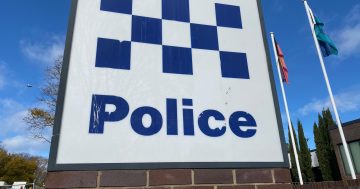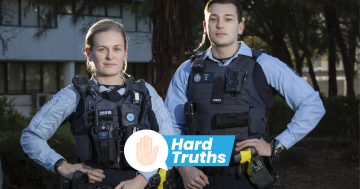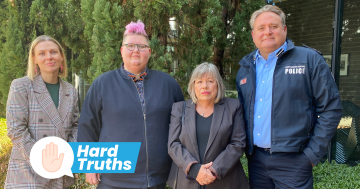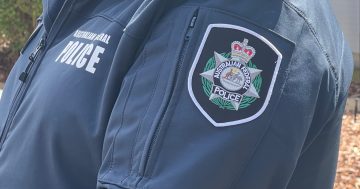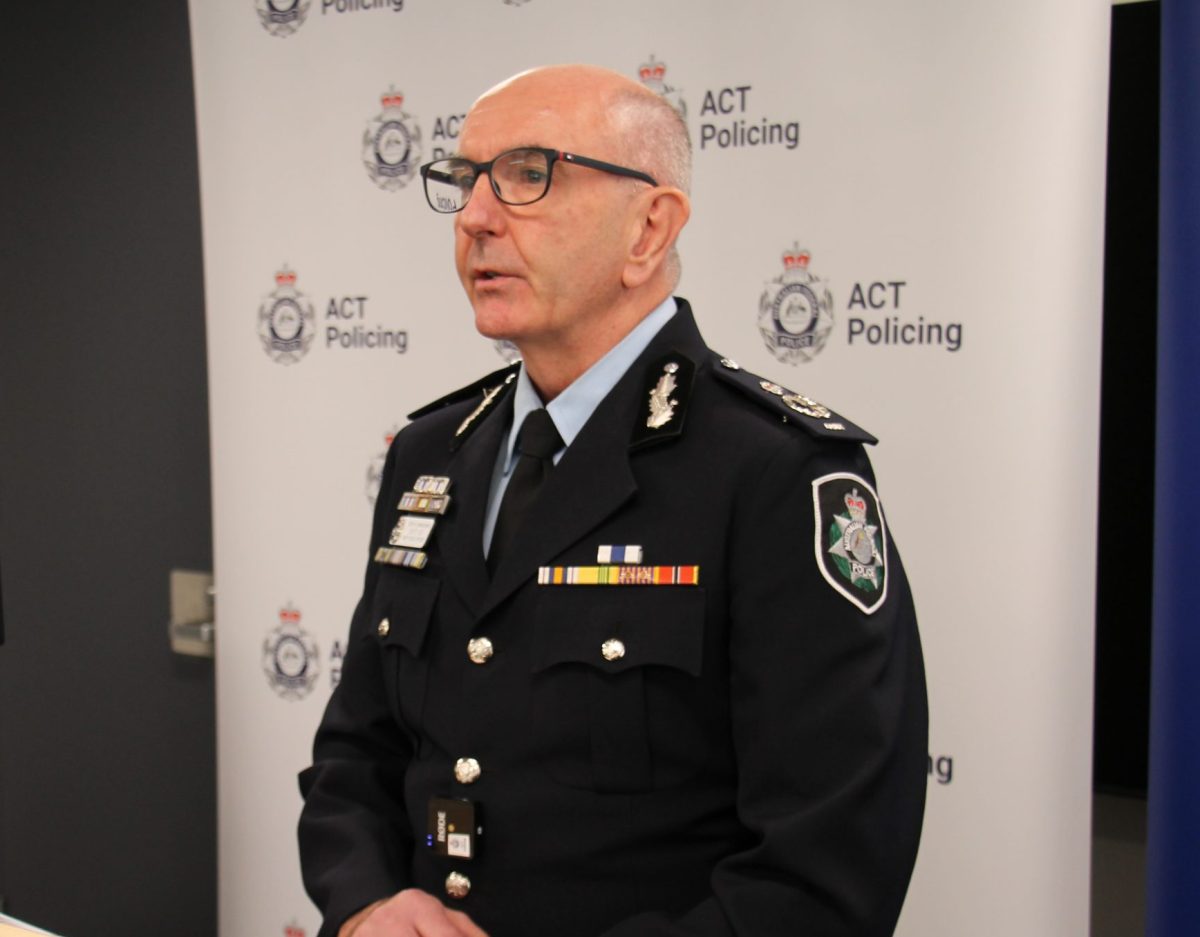
Chief Police Officer Scott Lee has launched the Territory’s first high-risk family violence unit. Photo: Albert McKnight.
CONTENT WARNING: This article refers to family violence.
The ACT has already seen an increase in the number of domestic violence cases reported to police this year, with officers responding to about 2000 alleged incidents so far.
This jump is why the Territory’s first high-risk domestic and family violence investigation unit was launched on Friday (28 June).
The unit involves expanding ACT Policing’s existing family violence unit to 23 officers who are dedicated to investigating such high-risk offenders and creating an intelligence capability to better inform their partners and police about family violence risks.
“This unit has been created now because of the scale of domestic and family violence matters that we have seen across the ACT,” Chief Police Officer Scott Lee told media at a press conference.
“This is the first time in the history of the ACT that we’re setting up an investigative unit solely dedicated to domestic and family violence matters in order to better investigate and support victims and recognise the significance of this type of insidious criminality in our community.
“I think the key message here though is it’s a fundamental shift in how we respond to domestic and family violence across the ACT with actually a dedicated unit for investigation rather than coordination.”
He said out of the 2000 domestic violence incidents police were called to as of June, more than 500 involved assaults, which was an increase of 106 per cent from 10 years ago.
In 2023, about 1600 family violence matters were reported to police.
Out of 2024’s numbers, there have been about 400 arrests and 1100 charges laid, while the crimes include homicides, violent threats, assaults, stalking and intimate image abuse.
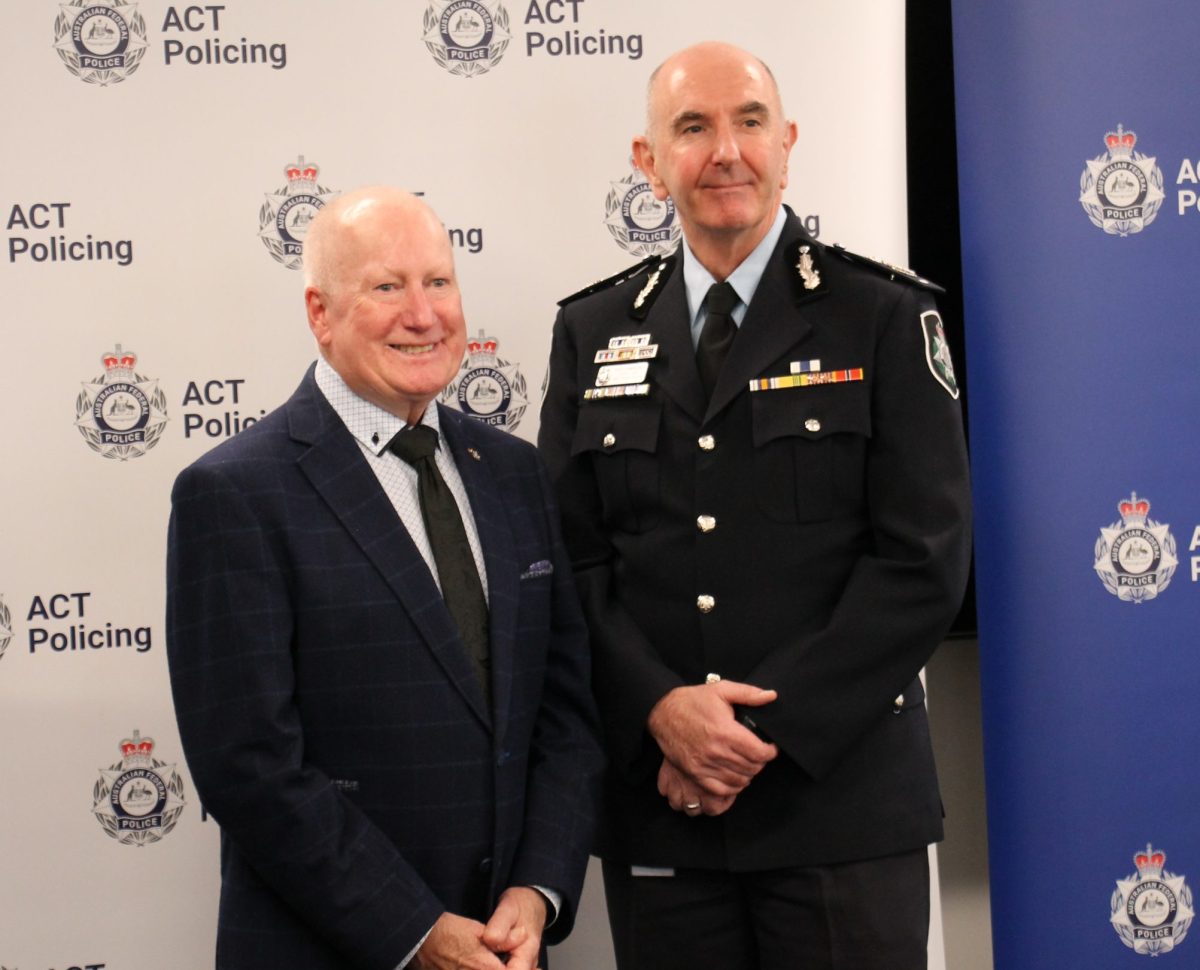
Minister for the Police and Crime Prevention Mick Gentleman (left) and Chief Police Officer Scott Lee at the new unit’s launch on Friday (28 June). Photo: Albert McKnight.
“This is happening across the Territory. No suburb in the ACT is immune from those crimes,” Mr Lee said.
“So the impact on communities and the impact on victim-survivors has meant that we need to dedicate or establish a dedicated unit as we do with other serious crimes so that we’ve got specialist investigators who can respond to these matters, ensuring that we’re both investigating, intervening earlier and putting in place better mechanisms for victim-survivors.”
When Mr Lee was asked whether recidivists were behind this recent increase in cases or people new to the criminal justice system, he said there were a range of factors involved.
“There are certainly recidivist offenders in the ACT as per any other jurisdiction in the country,” he said.
“[When it comes to the increase in reporting] people are feeling more comfortable in coming forward to police and we hope that continues.
“But we also think community expectations are shifting as well. So in the past, I think domestic and family violence was seen very much through the lens of physical violence, whereas we know now domestic and family violence manifests itself in a number of other ways through coercive control, controlling a partner’s behaviour, financial situation and other factors.”
When asked why people were now more comfortable about approaching police regarding family violence, he said he had seen more confidence in the system when officers were responding to these types of incidents.
He said police had a domestic violence risk assessment tool which was used to assess who was a high-risk offender. The tool is expected to be updated in the future.
He also said recidivist offenders were not the only high-risk offenders and police might determine a case was high-risk when it was first reported to police.
Minister for the Police and Crime Prevention Mick Gentleman said the new unit would lead to better outcomes for victims.
“Importantly, this new unit will look to ensure repeated calls for assistance do not occur by identifying the most at-risk victims, and ensuring all options for support and compliance are being implemented,” he said.
He said the unit was funded by $107 million the ACT Government invested in 2023 for 126 new police.
The unit will be supported by a coordination team staffed by experienced officers responsible for liaising with victim-survivors and other government partners and developing and implementing training packages.
If this story has raised any concerns for you, 1800RESPECT, the national 24-hour sexual assault, family and domestic violence counselling line, can be contacted on 1800 737 732 or by visiting www.1800respect.org.au. Help and support are also available through the Canberra Rape Crisis Centre on 02 6247 2525, the Domestic Violence Crisis Service ACT on 02 6280 0900, and Lifeline on 13 11 14. In an emergency, call triple zero.












